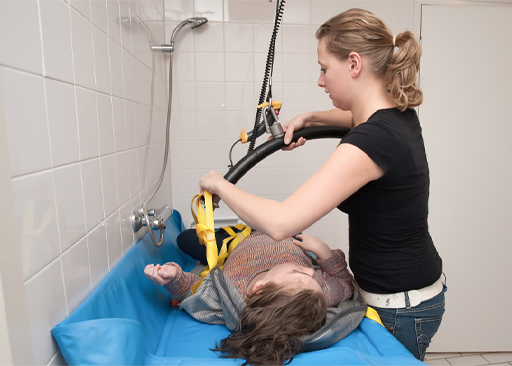4 The physical demands of the caring role
As outlined in the previous sections, a carer provides help and support to a relative or friend with duties ranging from the delivery of domestic chores to physical/manual help and different aspects of personal care. The level or intensity of such duties will depend upon the care needs of the person being supported and can have implications for a carer’s health and wellbeing (Milne & Larkin, 2015).

Caring for a relative or friend can be incredibly rewarding but, as you have seen, it can be a significant time commitment. This can result in additional demands being placed on a carer’s physical and emotional capacities, as you saw with the two adult carer case studies in Activity 2. There is extensive evidence that caring for others can have a major impact on a person’s health and wellbeing, in addition to social life, employment and finances (Larkin et al., 2019). Indeed, if you are a carer, you are more likely to be in poor health – both physically and mentally – than people without caring responsibilities (Carers UK, 2019c). Research identified 61% of carers said their physical health had worsened as a result of caring, with a leading concern regarding health and wellbeing being reported as not getting enough sleep (Carers UK, 2018).
Research tells us that caring can impact on sleep quality and duration (McCann et al., 2015; Wade et al., 2020). BUPA (2015) offer guidance on how to achieve a good night’s sleep [Tip: hold Ctrl and click a link to open it in a new tab. (Hide tip)] and suggest using a sleep diary to support making improvements to sleep patterns. A link to a sleep diary is available in the Further Reading section at the end of the course.
In the next section you will consider the physical demands of the caring role in more detail.
